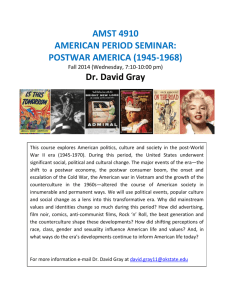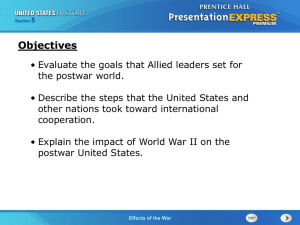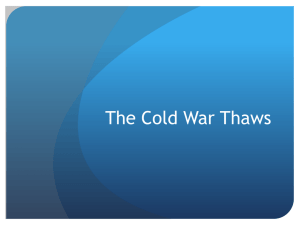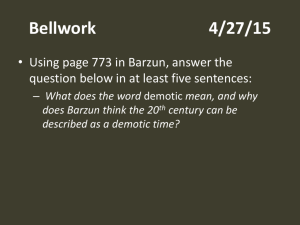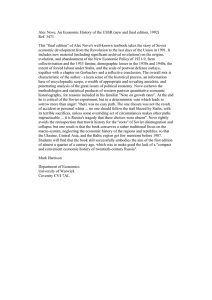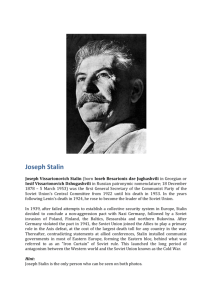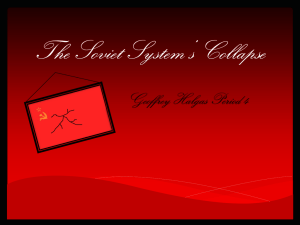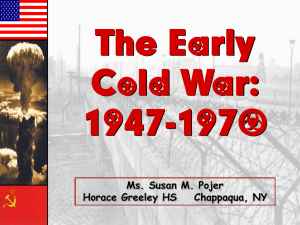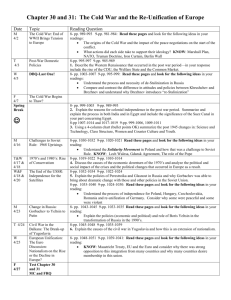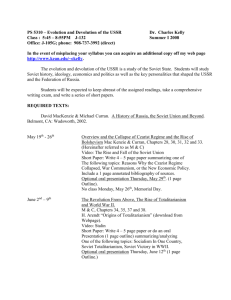AP EUROPEAN HISTORY CHAPTER 30
advertisement
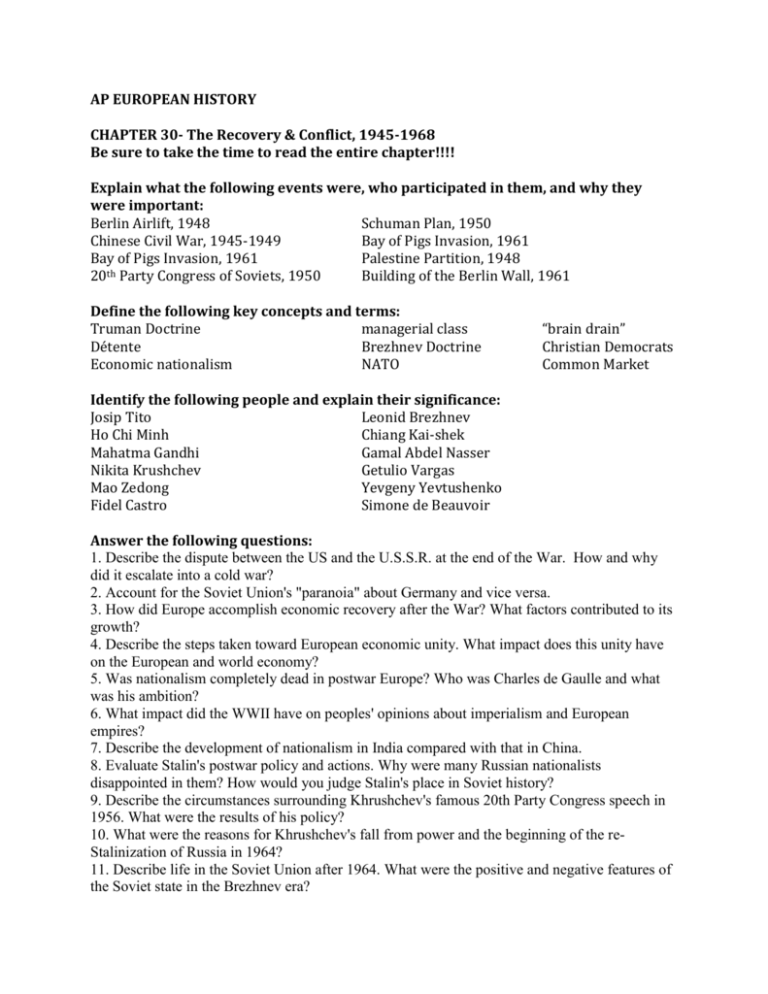
AP EUROPEAN HISTORY CHAPTER 30- The Recovery & Conflict, 1945-1968 Be sure to take the time to read the entire chapter!!!! Explain what the following events were, who participated in them, and why they were important: Berlin Airlift, 1948 Schuman Plan, 1950 Chinese Civil War, 1945-1949 Bay of Pigs Invasion, 1961 Bay of Pigs Invasion, 1961 Palestine Partition, 1948 th 20 Party Congress of Soviets, 1950 Building of the Berlin Wall, 1961 Define the following key concepts and terms: Truman Doctrine managerial class Détente Brezhnev Doctrine Economic nationalism NATO “brain drain” Christian Democrats Common Market Identify the following people and explain their significance: Josip Tito Leonid Brezhnev Ho Chi Minh Chiang Kai-shek Mahatma Gandhi Gamal Abdel Nasser Nikita Krushchev Getulio Vargas Mao Zedong Yevgeny Yevtushenko Fidel Castro Simone de Beauvoir Answer the following questions: 1. Describe the dispute between the US and the U.S.S.R. at the end of the War. How and why did it escalate into a cold war? 2. Account for the Soviet Union's "paranoia" about Germany and vice versa. 3. How did Europe accomplish economic recovery after the War? What factors contributed to its growth? 4. Describe the steps taken toward European economic unity. What impact does this unity have on the European and world economy? 5. Was nationalism completely dead in postwar Europe? Who was Charles de Gaulle and what was his ambition? 6. What impact did the WWII have on peoples' opinions about imperialism and European empires? 7. Describe the development of nationalism in India compared with that in China. 8. Evaluate Stalin's postwar policy and actions. Why were many Russian nationalists disappointed in them? How would you judge Stalin's place in Soviet history? 9. Describe the circumstances surrounding Khrushchev's famous 20th Party Congress speech in 1956. What were the results of his policy? 10. What were the reasons for Khrushchev's fall from power and the beginning of the reStalinization of Russia in 1964? 11. Describe life in the Soviet Union after 1964. What were the positive and negative features of the Soviet state in the Brezhnev era? 12. Why did science become "Big Science" in the postwar era? What is the purpose of Big Science? How has the rise of Big Science altered the lives of modern scientists? 13. What changes have taken place in the European class structure since the war? Does greater or less mobility exist? Has the distribution of income remained the same? 14. What were the reasons and outcome of the European student rebellions of the late 1960s? 15. How did the roles of women change during this era? How did this impact the development of the Women’s Movement?

